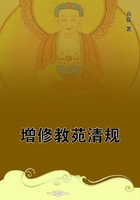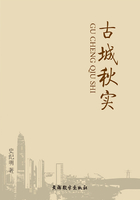THE CASE OF THE LADY ALICE LISLE
0f all the cases tried in the course of that terrible circuit, justly known as the Bloody Assizes, the only one that survives at all in the popular memory is the case of the Lady Alice Lisle. Her advanced age, the fact that she was the first woman known in English history to have suffered death for no worse an offence than that of having exercised the feminine prerogative of mercy, and the further fact that, even so, this offence - technical as it was - was never fully proved against her, are all circumstances which have left their indelible stamp of horror upon the public mind. There is also the further circumstance that hers was the first case tried in the West by that terrible Chief Justice, Baron Jeffreys of Wem.
But the feature that renders her case peculiarly interesting to the historical psychologist - and it is a feature that is in danger of being overlooked - is that she cannot really be said to have suffered for the technical offence for which she took her trial. That was the pretext rather than the cause. In reality she was the innocent victim of a relentless, undiscerning Nemesis.
The battle of Sedgemoor had been fought and lost by the Protestant champion, James, Duke of Monmouth. In the West, which had answered the Duke's summons to revolt, there was established now a horrible reign of terror reflecting the bigoted, pitiless, vindictive nature of the King. Faversham had left Colonel Percy Kirke in command at Bridgwater, a ruthless ruffian, who at one time had commanded the "Tangier garrison, and whose men were full worthy of their commander.
Kirke's Lambs they were called, in an irony provoked by the emblem of the Paschal Lamb on the flag of this, the First Tangier Regiment, originally levied to wage war upon the infidel.
>From Bridgwater Colonel Kirke made a horrible punitive progress to Taunton, where he put up at the White Hart Inn. Now, there was a very solid signpost standing upon a triangular patch of green before the door of the White Hart, and Colonel Kirke conceived the quite facetious notion of converting this advertisement of hospitality into a gallows - a signpost of temporal welfare into a signpost of eternity. So forth he fetched the prisoners he had brought in chains from Bridgwater, and proceeded, without any form of trial whatsoever, to string them up before the inn. The story runs that as they were hoisted to that improvised gibbet, Kirke and his officers, standing at the windows, raised their glasses to pledge their happy deliverance; then, when the victims began to kick convulsively, Kirke would order the drums to strike up, so that the gentlemen might have music for their better dancing.
The colonel, you see, was a humorist, as humour was then understood upon the northern shores of Africa, where he had been schooled.
When, eventually, Colonel Kirke was recalled and reprimanded, it was not because of his barbarities many of which transcend the possibilities of decent print - but because of a lenity which this venal gentleman began to display when he discovered that many of his victims were willing to pay handsomely for mercy.
Meanwhile, under his reign of terror, men who had cause to fear the terrible hand of the King's vengeance went into hiding wherever they could. Among those who escaped into Hampshire, thinking themselves safer in a county that had not participated in the war, were a dissenting parson named George Hicks, who had been in Monmouth's army, and a lawyer named Richard Nelthorp, outlawed for participation in the Rye House Plot. In his desperate quest for shelter, Hicks bethought him of the charitable Nonconformist lady of Moyle's Court, the widow of that John Lisle who had been one of Cromwell's Lords Commissioners of the Great Seal, and most active in bringing King Charles I to justice.
John Lisle had fled to Switzerland at the Restoration; but Stuart vengeance had followed him, set a price upon his head, and procured his murder at Lausanne. That was twenty years ago. Since then his lady, because she was known to have befriended and sheltered many Royalists, and because she had some stout Tory friends to plead for her, was allowed to remain in tranquil possession of her estates.
And there the Lady Alice Lisle - so called by courtesy, since Cromwell's titles did not at law survive the Restoration - might have ended her days in peace, but that it was written that those who hated her - innocent and aged though she was - for the name she bore, who included her in the rancour which had procured her husband's assassination, were to be fully satisfied. And the instrument of fate was this parson Hicks. He prevailed upon Dunne, a baker of Warminster, and a Nonconformist, to convey to the Lady Lisle his prayer for shelter. With that message Dunne set out on July 25th for Ellingham, a journey of some twenty miles. He went by way of Fovant and Chalk to Salisbury Plain. But as he did not know the way thence, he sought out a co-religionist named Barter, who undertook, for a consideration, to go with him and direct him.
Together the pair came in the late afternoon of that Saturday to the handsome house of Moyle's Court, and to my lady's steward, who received them. Dunne, who appears to have been silly and imprudent, states that he is sent to know if my lady will entertain a minister named Hicks.
Carpenter, the steward, a staid, elderly fellow, took fright at once. Although he may not have associated an absconding Presbyterian parson with the late rebellion, he must have supposed at least that he was one of those against whom there were warrants for preaching in forbidden private meetings. So to her ladyship above stairs Carpenter conveyed a warning with the message.
But that slight, frail, homely lady of seventy, with kindly eyes of a faded blue, smiled upon his fears. She had sheltered fugitives before - in the old days of the Commonwealth - and nothing but good had ever come of it. She would see this messenger.















